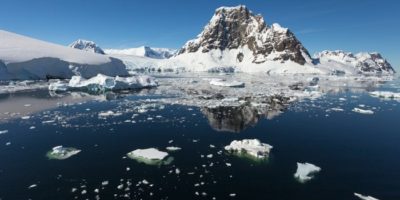Disclaimer: The views, suggestions, and opinions expressed here are the sole responsibility of the experts. No Pacific Daily journalist was involved in the writing and production of this article.
Utilization of neonicotinoids on rice paddies connected to fishery breakdown in Japan

A group of analysts with individuals subsidiary with a few organizations in Japan has discovered what they depict as convincing proof of two fisheries falling because of utilization of neonicotinoid pesticides by close by rice ranchers.
In their paper distributed in the diary Science, the group depicts their investigation of fishery water quality information more than two decades and what they gained from it. Olaf Jensen with Rutgers University has distributed a Perspective piece talking about the work by the group in a similar diary issue.
As Jensen notes, it is anything but difficult to test the poisonous quality of synthetic substances straightforwardly on plants or creatures. Just applying them and watching what happens tells analysts the effect it has. Significantly more troublesome is nailing down the backhanded impacts of synthetic substances, for example, those that are utilized in neonicotinoid pesticides.
In this new exertion, the specialists began with the idea that it was likely the utilization of such pesticides that had prompted abrupt fishery breakdown in Lake Shinji, Japan.
In 1993, anglers working at two fisheries on the lake found that yields had all of a sudden dropped drastically. The explanation behind it was not known yet many presumed it was attached to the utilization of neonicotinoid pesticides by close by ranchers—another training.
To see whether that was for sure the case, the specialists assembled information acquired by different groups concentrating the lake over a period ten years when the breakdown of the fisheries.
In taking a gander at the outcomes, the specialists found that the year following the principal utilization of neonicotinoid pesticides in the neighborhood, measure of zooplankton in the lake crashed. This was trailed by a quick drop in populace of the fish that benefited from them.
All the more explicitly, they found that zooplankton biomass shrank by roughly 83 percent. That year the smelt gather was only 22 tons, a sensational drop from a normal take of 240 tons every year.
The scientists note that they likewise contemplated different elements that may have prompted fishery breakdown, for example, supplement exhaustion or changes in oxygen or salt fixations. They report that they were not ready to discover any proof indicating that there might have been an option that is other than pesticides executing the nourishment fish ate leaving them to starve. They presume that the proof firmly recommends it was the presentation of neonicotinoid pesticides into the lake condition that prompted the bite the dust offs.
Mario Ferrari is a prolific writer, He is a seasoned writer. He has written many short-stories and poem for newspapers and magazines. He has a passion for creating new websites for online marketing. He has bachelor’s degree in M.C.A from New York. Mario Ferrari has won multiple awards for his excellent writing.
Related News

THE KETO DIET MEAL PLAN HAS MET ITS MATCH
Spread the loveWeight loss is made to seem easy since all it requires is exerciseRead More

Study reveals new insight into the role of ocean ice in controlling climatic carbon levels
Spread the loveAnother study has featured the urgent job that ocean ice over the SouthernRead More